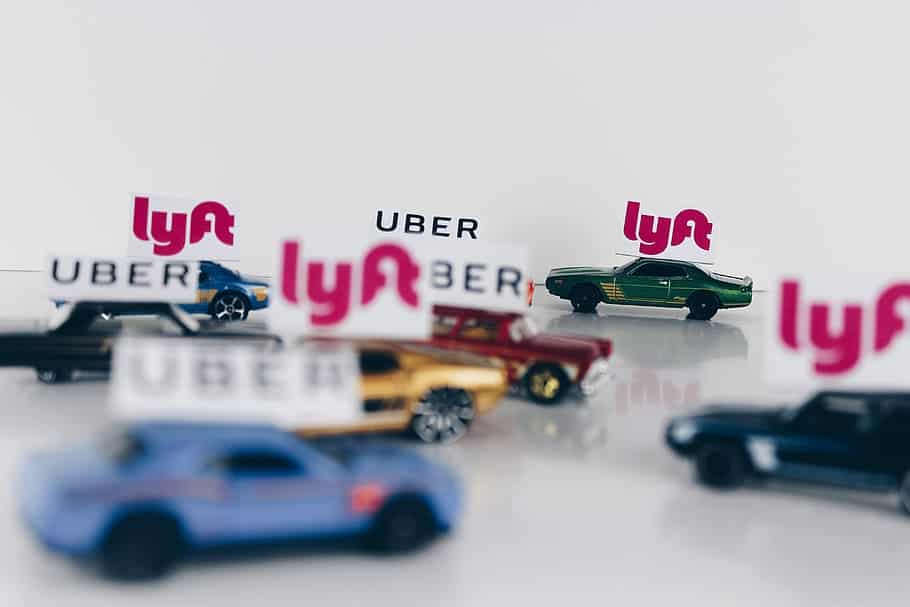William Greenlaw is a student at Harvard Law School.
Uber and Lyft have continued their national push to cement the status of their drivers as independent contractors rather than employees. In conjunction with Postmates and Instacart, the companies previously spent $205 million in California to successfully support an initiative to make those gig workers into contractors with some benefits. Now, they have moved their ambitions to the State of Massachusetts in an attempt to place a similar initiative on the ballot for voters. Response to this attempt has not been warm. Recently, the Massachusetts Attorney General sued the companies to make them classify their workers as employees. Speaking directly to the initiative, Senator Elizabeth Warren has called on the companies to drop their agenda and has accused the technology giants of buying themselves a new law as they spend $100 million on a statewide lobbying campaign in order to “keep denying workers fair pay, benefits, and basic protections.” Senator Warren joins workers, labor unions, and civil rights groups that oppose the initiative that if retained on the ballot would come before voters next year.
Google has settled with an employee on whose behalf the NLRB accused the company of firing him over his activism last year. The NLRB approved the settlement earlier this July, but its finality was only revealed yesterday by a Freedom of Information Act request. Google has denied any wrongdoing and the employee’s attorney has declined to comment. The NLRB continues to maintain other claims against Google, including that other employees were fired for protesting against the company’s relationship with the United States Customs and Border Control, and for creating a popup message informing employees of their labor rights. That claim is ongoing at trial in California and is in its third week. The original allegation against Google was that it punished and fired employees for accessing internal Google calendars of fellow employees that the company made available to staff. Google’s response at the time was that they honored employees’ workplace rights but punished employees “who abused their privileged access to internal systems, such as our security tools or colleagues’ calendars.” The case will undoubtedly draw parallels to Caesar’s Entertainment, the case allowing employers to restrict use of email systems for employee organizing. Given the NLRB now sits under a more worker-friendly presidential administration, the outcome could potentially be more favorable for workers.
United Airlines this week has announced that it plans to force mandatory leave on unvaccinated employees who have medical or religious exemptions. Anticipating potential public health concerns as the winter approaches, the company plans to introduce the measures for unpaid personal or medical leave on October 2nd. Not all employees will have their leaves unpaid since some union members have provisions allowing for paid medical leave. The airline said the policy was designed to protect customer and employee safety given the surge of the Delta variant nationwide. It has imposed a September 27th deadline for employees to submit proof of full vaccination. The company sent a memo to employees saying, “Given our focus on safety and the steep increases in Covid infections, hospitalizations and deaths — even since August 6 when we announced our vaccine requirement — we can no longer allow unvaccinated people back into the workplace until we better understand how they might interact with our customers and their vaccinated co-workers.” Customer-facing roles, such as flight attendants, pilots, and gate agents will be on extended leave until the pandemic appears to be over while non-customer-facing roles will be updated in October how the policy will affect their ability to return with new social-distancing and masking policies.
AT&T and the Communications Workers of America agreed yesterday to settle a lawsuit between them, resulting in the preservation of 29,000 landline technical jobs until the end of 2023. Not only did the settlement result in job preservation, it also included a commitment by AT&T to hire 6,000 more customer service workers and make Martin Luther King Jr. Day a holiday for all union members. The settlement is victory for the Union, whose membership had suffered from cost cutting and job eliminations by AT&T in recent times. AT&T also stands to benefit significantly from its deal to keep workers at the company. It plans to make fiber broadband available in 2.5 million locations this year. The rollout will be greatly aided by the 85,000 unionized employees filling the company’s ranks since January. The CWA expressed optimism with the deal, saying, “We are glad we got this settled with AT&T, and we are very interested in getting to work on broadband buildout.”






Daily News & Commentary
Start your day with our roundup of the latest labor developments. See all
December 12
OH vetoes bill weakening child labor protections; UT repeals public-sector bargaining ban; SCOTUS takes up case on post-arbitration award jurisdiction
December 11
House forces a vote on the “Protect America’s Workforce Act;” arguments on Trump’s executive order nullifying collective bargaining rights; and Penn State file a petition to form a union.
December 8
Private payrolls fall; NYC Council overrides mayoral veto on pay data; workers sue Starbucks.
December 7
Philadelphia transit workers indicate that a strike is imminent; a federal judge temporarily blocks State Department layoffs; and Virginia lawmakers consider legislation to repeal the state’s “right to work” law.
December 5
Netflix set to acquire Warner Bros., Gen Z men are the most pro-union generation in history, and lawmakers introduce the “No Robot Bosses Act.”
December 4
Unionized journalists win arbitration concerning AI, Starbucks challenges two NLRB rulings in the Fifth Circuit, and Philadelphia transit workers resume contract negotiations.